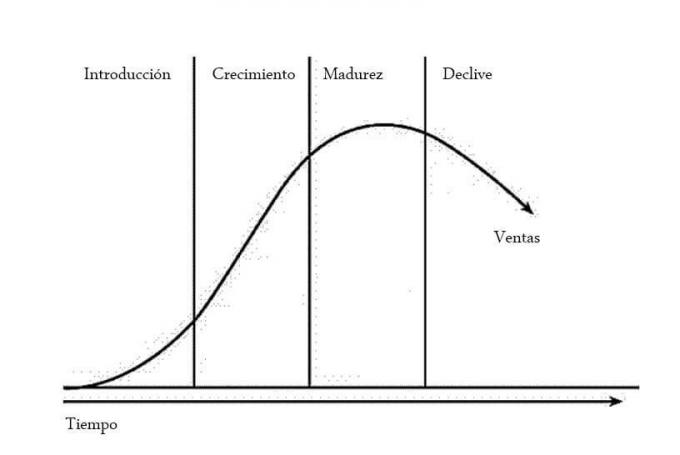The industrial process, or also called manufacturing processes. It is all that set of forms and steps that are taken to transform raw material into a final product.
For this, different methods are used, based on the manipulation and performance of operations to condition said raw material, which will then be separated and finally modified into the product to be achieved. In order to easily satisfy the needs, at the same time that it is possible to improve their quality of life.
Advertisements

In this article you will find:
Characteristics of the industrial process:
- Its main objective is to manipulate the raw material for different purposes or purposes.
- Execute and develop the necessary task to condition the raw material.
- Defragment the raw material and make the final products.
- Transform the raw material to make a profit.
- It is of utmost importance to the economy. In case there are no industrial processes the consumers they would see the need to use natural resources in their original state, which would lead to an increase in the price of final products and would also have an impact on the variation of products.
- The purpose of all these processes is aimed at making consumers' lives easier, and simplifying production processes.
Types of industrial processes:
Industrial processes are usually complex and extensiveThey are adapted for each type of material and within them there are variations and sub processes.
Advertisements
Industrial process for work
It is oriented to focus the manufacture of one product at a time, resulting in a clear distinction on each occasion.
Industrial process by continuous flow
Perhaps you have heard of "indefinite" production, and it is that the continuous flow process has the ability to produce the same product in a continuous way. uninterrupted, reaching 24 hours of operation without any inconvenience, nor sacrificing the quality that you want to achieve at the end of the working day.
Advertisements
Industrial batch process
It is used in order to have a greater volume of production, having responsibility and support in conjunction with molds or templates that will accompany you in the process.
Mass industrial process
This process dates back to the beginning of the 20th century and is until now the one that has made it possible to obtain hundreds of thousands of totally identical products in a given amount of time.
Advertisements
The machines or the worker is adapted to fulfill a specific task. The most outstanding characteristic of this type of process is that the production cycles are usually interrupted to provide rest to their workers or to the machines that are used for the production.

Advertisements
Environmental impact of industrial processes:
As we can see in our daily lives, more and more industries are growing by leaps and bounds, thousands of hectares of forests They even become deforested so that they become part of the growing and very lucrative industrial park, which consequently brings the increase of greenhouse gases, noise pollution, environmental pollution having a high cost for the value of the land and its non-renewable resource most precious, water.
However, and that is why many bet that it is not necessary to sacrifice the growth dynamics of these industries and their rigorous processes to generate products. Well, the objective is to achieve a consensus to migrate to sources of "green" and environmentally friendly energy, thus leaving us an ecosystem of balance and care without sacrificing the production processes or the quality of the products that are manufactured in her.
In industrial processes these renewable energies and modern practices are not far behind, and it is that they have also migrated to adapt to the modernity of the times and the legal and human needs and obligations to protect the environment and thus preserve it for generations future.
Examples of industrial processes:
Then we have prepared Two examples to clarify a little all this of the industrial processes and its applications depending on the raw material and its state. You will notice that the content of the examples are the most common processes today globally and with products that we use or ingest on a daily basis.
Example # 1 Paper production
It contemplates the development of an industrial process. It begins when a tree is felled and the wood is taken to a pulp mill. It is there where it will be peeled and peeled so that it can then be processed into something called “cellulose pulp”. This is followed by the application of peroxide, chlorine dioxide, caustic soda and other substances that allows the pulp to be bleached, which will then undergo what is called a drying stage and pressing. Thus, the process begins with a tree and ends with the production of the sheet of paper.
Example # 2 Industrialization process for pasteurized milk
After milking the cow, the milk obtained is subjected to a series of industrial processes that guarantee its quality and the correct procedure to make it. finally it acts for human consumption, among them we can highlight the homogenization, sterilization, and pasteurization so that it can be packaged and commercialized.
Example # 3 Industrial process for the manufacture of lipstick
The process begins with the mixture of oil and wax, then pigmentation is carried out, adding solvent and pigment. The mixture takes several hours and is placed on the plastic or material that will form the lipstick tube. On cooling they will obtain their final shape.
As you could see throughout this article, industrial processes are not just a number of tactics and guidelines that companies must comply rigorously to carry out a quality product, but also, all of these are committed to a greater cause and adapted according to the need of the raw material to be treated, to finally turn it into a final product, be it a shoe, makeup or something as elementary as milk.
Reliance on these processes is vital to achieving a simpler life for end consumers.
FAQ - Frequently asked questions about this topic
What are the stages of the industrial process?
1.- Handling the raw material; 2.- Condition the raw material; 3.- Process the raw material; 4.- Separate the raw material; 5.- Create the final product
What is a continuous flow industrial process?
They are industrial processes that do not have pauses during a specific time. They are usually 24 hours in a row.
What are the types of industrial processes?
There are 4 main types of industrial processes: Industrial process for work; Industrial process by continuous flow; Industrial batch process; Mass industrial process
We hope this article has been very helpful. Leave us your comment!
You may also like:
- Types of industrial processes
- Industrialization
- Organization chart of an industrial company
- Industrial Revolution
- Industrial company

